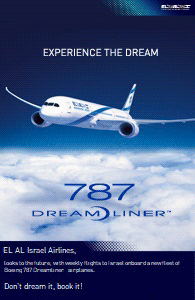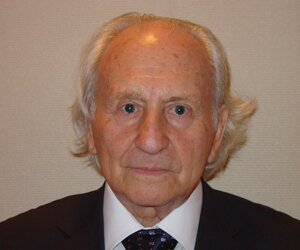| Noah Klieger - a true hero |

|

|
|
One is not likely to meet many people in their lifetime who are more remarkable than Noah Klieger. At eighty-one he still resembles the boxer he once claimed to be in his fight for survival. Noah will tell you though that his survival is nothing short of a miracle. He explains that each day survival in Auschwitz could only be explained through miracles. It was not sufficient to be ‘merely' industrious, capable and strong you were, though Noah has proven that he is all of these things. He states that all that separated the survivors from the condemned was how many miracles happened to keep you alive. “It took at least one per day, sometimes ten or more to merely make it to see another day.†As he explains, 1.5 million people were murdered in Auschwitz. Only about 45,000 were able to live to tell the story.
Noah was born in 1926 in Strasbourg, France. When World War II swept through France he left his childhood behind and became a true hero. He joined the Jewish underground movement, cooperating with the French Resistance until his capture in 1942 when he was sent to Auschwitz. Noah’s mere fact of daily survival in Auschwitz is proof of faith and miracles. There he fortuitously and spontaneously portrayed himself as a boxer, a bold move that helped to save his life. Witihn a day or two of his arrival in Auschwitz, the commedant of the camp asked who among the prisoners were boxers. The commedant was a “boxing freak†and often put on staged fights for his own entertainment and the entertainment of the other officers. Along with two European boxing champions and a professional soccer player, who like Noah would have to fake boxing experience and prove himself in the ring, Noah raised his hand. What prompted him to raise his hand and claim that he was a boxer when he had only been involved in a handful of “street fightsâ€? Noah states that this can be called nothing other than a miracle. For seven months he was sustained by the distribution of real soup, the same as the guards ate, through his ‘entitlement’ as a boxer. As a member of the Auschwitz boxing squad, having never before been inside a boxing ring, he proved himself to be an okay enough boxer but a true fighter. He survived hours forced to stand naked in freezing cold, the Death Marches, a run in with Mengele, starvation, disease, brutal forced labour and torture. Later, immediately following the war, he again thrust himself into the pages of the history books. The events in Noah’s life truly read like a timeline of major historical events. In 1947, he served as first mate aboard the Exodus, a ship of mainly survivors with a shared destiny, nothing left behind and only their homeland awaiting them. In Israel, in 1948, he joined the army in the fight for Independence. He has lived in a world far beyond the ordinary. He is a survivor, a witness, a fighter, a boxer, a mechanic, a first-mate, a war hero, a Zionist, a sports writer … He explains how ‘liberation’ from the camps is somewhat of a misuse of the term. He was evacuated from Auschwitz, marched out on a Death March. He implies that it was not quite a true liberation for any of the survivors as their liberation was still yet to come. The birth of Israel was the battle of survivors to claim an identity for themselves and to regain the humanity that the Holocaust stripped from them. To blame the Holocaust on ‘the Nazis’ is a lie, Noah explains. As a survivor, as a witness, he is clear that the truth must be voiced. Noah explains that these atrocities were committed by Germans; to allow the blame to be cast on ‘the Nazis’ is in effect to absolve the Germans of the crimes against humanity that they committed as Germans. The Nazis were first and foremost Germans. They did not fall from a star as mythical creatures that can again disappear from the world and allow the Germans to cast off their sins. Noah makes no apologies, ‘pulls no punches’. He does not hide behind a false veil of contemporary political correctness. Noah delivers the message that no German can claim that they did not know, that they were ignorant or innocent. For this reason, for the active choice of Germans to participate, whether active or passive, despite claims of ignorance, he is unable to speak to any German who was an adult during the Holocaust. There are a few rare exceptions to this in cases of those that chose to fight against the regime. He also makes the point that the Catholic Church was a party to this too. The Church, early in the war, exercised their power to effect changes in the regime’s practices. When certain segments of the population, such as the mentally handicapped, began to be “euthanizedâ€, the Church spoke out against this. Their condemnation made a difference and it could have made a difference for the Jews as well. When the Final Solution was implemented against the Jews, they were silent. Silence is a crime. Like their fellow Germans, they too showed their approval in the absence of words. Noah explains that he accepts that the Germans did not like the Jews but where all logic breaks down is where the line was crossed. How does dislike move from a mere latent prejudice to an organised, systematic method of mass murder, torture and annihilation? The use of the term Holocaust alone is another battle he must fight and another line he must draw. As a writer he recognises the power of words. This term ‘Holocaust’ he explains in no way can be used for anything else. “It is reserved for what happened, what was done.†He continues that use of the words “transports†and “selections†too has been claimed. They no longer have use in daily language with the exception of in reference to the “transports to the death camps†and the “selections that determined whether a prisoner was to be sent to the gas chambers immediately or condemned to die later.â€Â  Noah explains that while not a day goes by that he does not ask the question “why me?†His only answer to this is that he survived to tell his story. And not a day goes by when his conscience is not flooded with memories of the horrors he observed. He explains that it his personal mission to make certain that the world that the world has not forgotten the six million Jews who perished. He however states that he “does not live in the past.†He is clear that he “lives in the present and a bit in the future.†|

















